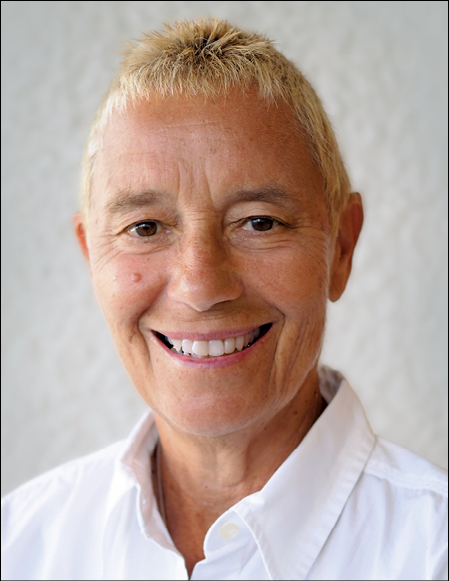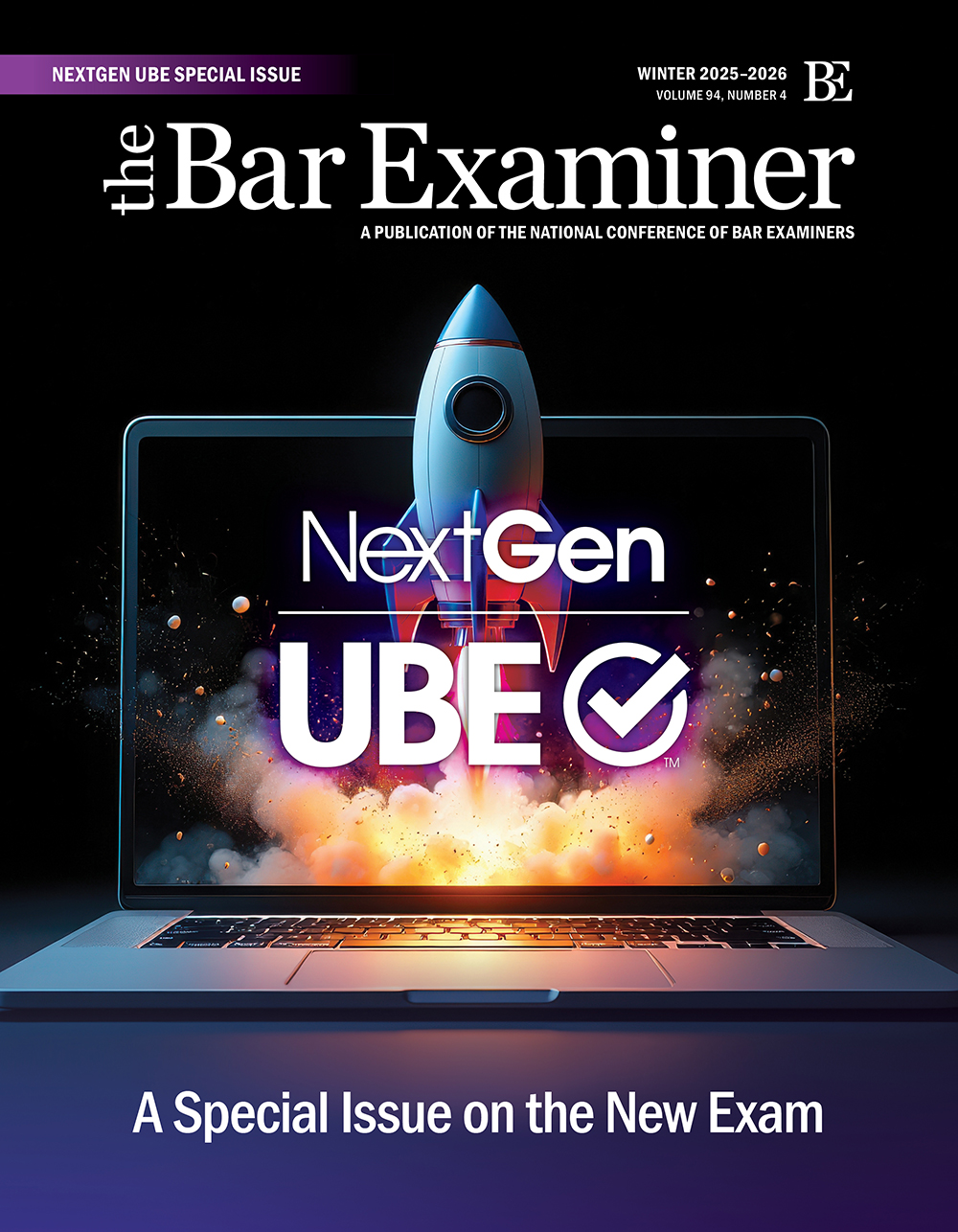This article originally appeared in The Bar Examiner print edition, Summer/Fall 2021 (Vol. 90, Nos. 2-3), pp. 1–2. By Suzanne K. Richards
 Many in the bar admissions community probably thought that this would be the year when we stopped talking about the pandemic, stopped not seeing one another in person, stopped virtual togetherness—in short, returned to “normal,” or at least what we considered normal. But that has not happened, and it is not yet clear when it will happen.
Many in the bar admissions community probably thought that this would be the year when we stopped talking about the pandemic, stopped not seeing one another in person, stopped virtual togetherness—in short, returned to “normal,” or at least what we considered normal. But that has not happened, and it is not yet clear when it will happen.
The bar admissions community is a varied one. Some of us are Supreme Court justices, some are bar admission administrators, some are volunteers on bar examiner boards or character and fitness committees, some are law school deans or professors, some are members of organizations seeking to promote and better the legal profession. Whatever our role, we all share a common commitment to the profession and a dedication to make it better.
And just because physical togetherness may not be feasible does not have to mean that we cannot be connected in meaningful ways. We have shown ourselves to be resilient throughout the pandemic, so let’s not stop now. Let’s engage with one another. Let’s understand that we will not always agree on every issue. But let’s also understand that we can converse with one another with civility and courtesy, remembering that we are all members of one community. We can focus on conversation with, not scoring points against, one another. More importantly, we can listen to one another; we can question and explore positions without being suspicious of motivations and intentions. We can ensure that we subject our own conclusions to the same critical thinking that we engage in regarding the views of others.
At NCBE, as we begin a new year, we pledge to continue to serve the bar admissions community as we have done for the past 90 years. Our ongoing dedication of resources is a commitment to that pledge—to providing investigative services, educational opportunities, and research support to jurisdictions; to supporting initiatives and programs that seek to promote diversity, equity, and fairness in the legal profession; and to developing a new bar examination that meets the well-recognized testing standards for a high-stakes licensing examination.
For the past year and a half, we have all shown the ability to meet the challenges presented by difficult and unprecedented circumstances. Bar admission administrators and staff have worked tirelessly to ensure that law students had the opportunity to become members of the profession; often criticized, seldom thanked, they quite simply did their jobs. Working countless hours, NCBE staff members have devoted themselves to helping jurisdictions achieve this goal, providing multiple options to administer the bar examination in person or remotely. The bar admissions community’s resiliency and commitment during this time should make us hopeful for the future. Working together in respectful collaboration should allow us to accomplish worthwhile projects and fulfill our commitment to the legal profession.
As the new chair of the NCBE Board of Trustees, I welcome the opportunity to be part of the collaborative efforts of the bar admissions community in the year ahead. I can only hope that I am able to fill this position half as competently and wisely as Hulett “Bucky” Askew did this past year. Bucky is a person of integrity and wisdom who helped guide NCBE through the difficult 2020–2021 period. My goal is to carry forward the excellent leadership that he and so many other past chairs have brought to NCBE.
One of the primary projects we will be initiating this year is a comprehensive revision of the character and fitness application. The Character and Fitness Investigations and the Diversity and Inclusion Committees will collaborate in reviewing the application to ensure that the questions asked are necessary for a character and fitness determination and are phrased in a manner that is fair and impartial to all.
I look forward to working with all of you in the coming year, and I welcome and am open to your thoughts and suggestions as we work together to ensure a competent, ethical, and diverse legal profession.
Best regards to all,
![]()
Suzanne K. Richards
Contact us to request a pdf file of the original article as it appeared in the print edition.







